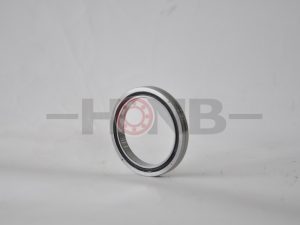Home > News > Product Knowledge > About the treatment of lubrication failure of the main bearing of the grinding mill
About the treatment of lubrication failure of the main bearing of the grinding mill
Author: hongyuanTime:
Generally, main bearing operation failures mainly include the following situations:
(1) The temperature of the lubricating oil gradually increases, forming streaks of Babbitt alloy on the outer surface of the hollow shaft journal. The deep streaks can reach about 2mm, and the density is uneven. The main reason is that the smoothness of the hollow shaft journal is not enough, which causes the contact point of the tile surface to be subjected to shear stress, causing large-area strain (shear damage). Babbitt alloy particles are adhered to the surface of the hollow shaft journal. When the hollow shaft rotates to the upper part, it meets the cold lubricating oil and is cold treated, thus increasing the hardness. When it rotates downward with the hollow shaft, it strains the tile surface and causes Strip traces with unequal spacing. At the same time, after the hollow shaft with babbitt alloy particles adhered to it undergoes circulation and friction, the temperature of the main bearing lubricating oil gradually increases and generates high temperature. At this time, the bearing shell should be pulled out and the tile surface should be scraped again. If the streaks are too deep, homogeneous babbitt alloy should also be repaired and welded.
(2) High temperature appears on one side of the bearing bush. This is caused by the adjustment failure of the tile seat, which causes the tile surface to contact the hollow shaft journal in a small area and the static load increases. At this time, the mill cylinder should be jacked up to check the contact between the spherical tile back and the tile seat. If necessary, the tile seat and tile back should be reground to make them self-aligning. At the same time, it is necessary to re-scrape the tile surface to completely scrape off the oxide layer, and polish the hollow shaft journal with a whetstone.
(3) When the temperature rises, sometimes the main shaft has a dark luster and adhesion. This is caused by the local high temperature on the tile surface and the gluing. At this time, the bearing bush should be scraped; sometimes the main shaft is bright, which is due to the oil. It is caused by poor quality and many impurities in the oil, so the oil should be changed.
(4) The oil temperature is high, but there is no babbitt adhesion phenomenon. The reasons may be as follows: first, the supply of lubricating oil is small and the viscosity is low, and the oil film cannot be formed; second, the oil quality may be poor; third, the grinding pad does not meet the specification requirements, and the gap between the pad openings is too small; fourth, the bearing pad Cooling water is not flowing smoothly. Measures such as changing the oil, re-scraping the tiles and unblocking the cooling water can be taken respectively.


We have rich experience in precision bearing manufacturing and are ranked NO.1 in China and NO.3 all over the world.
We can tailor the overall solution for the use of precision bearings.
HONB– Accountability & Innovation
Products
- YRT rotary table bearing
- YRTS rotary table bearing (high speed series)
- YRTM with integral angular measuring system series
- ZKLDF axial angular contact ball bearing series
- RA series crossed roller bearing
- SX series crossed roller bearing
- CRBH series crossed roller bearing
- RE series crossed roller bearing
- RU series crossed roller bearing
- RB series crossed roller bearing
- XR/JXR series crossed taper roller bearing
- Crossed roller bearing
Contact Us

✉️ bearing20@hyzcgroup.com
📞 +86 15236685001





